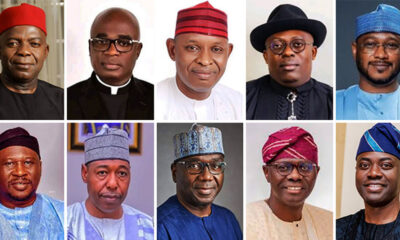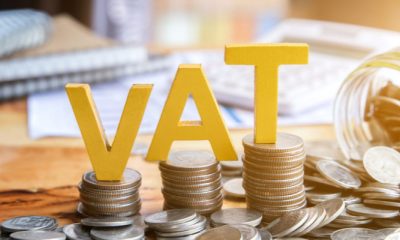Business
Reform Bills propose 55 per cent VAT revenue for states
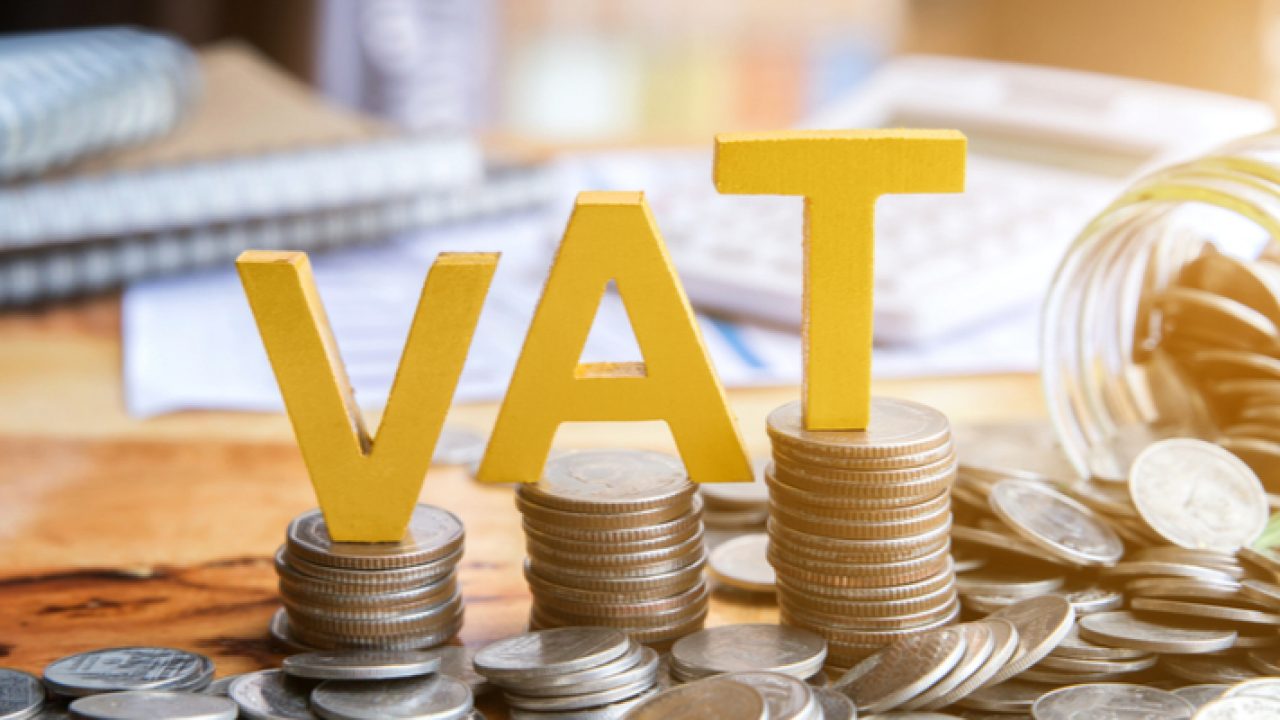
Reform Bills propose 55 per cent VAT revenue for states
More insights into the Tax Reform Bills under consideration by the National Assembly were given yesterday during a debate at the Senate.
Should the Bills be passed as proposed and signed by the President, states will get 55 per cent of the Value Added Tax (VAT).
Senate Leader Opeyemi Bamidele made this know during the debate, which proceeded the passage of the Bills through first and second reading.
In the House of Representatives, lawmakers chose to continue consultations on the Bill until the next legislative day (Tuesday).
The four Tax Reform Bills sent by the Executive are:
•A Bill for an Act to Establish the Joint Revenue Board, the Tax Appeal Tribunal and the Office of the Tax Ombudsman for the harmonisation, coordination and settlement of disputes arising from revenue administration in Nigeria and for related matters, 2024.
•A Bill for an Act to Repeal the Federal Inland Revenue Service (Establishment) Act, No.13, 2007 and enact the Nigeria Revenue Service (Establishment) Act to Establish the Nigeria Revenue Service, charged with powers of assessment, collection of, and accounting for revenue accruable to the Government of the Federation, and for related matters, 2024.
•A Bill for an Act to Provide for the assessment, collection of, and accounting for revenue accruing to the Federation, Federal, States and Local Governments; prescribe the powers and functions of tax authorities, and for related matters, 2024.
•A Bill for an Act to Repeal certain Acts on taxation and consolidate the legal frameworks relating to taxation and enact the Nigeria Tax Act to provide for taxation of income, transactions and instruments, and for related matters, 2024.”
READ ALSO:
- Nigeria ranks 4th among Africa’s most improved visa friendly nations
- 2023 Hajj: NAHCON refunds N5.3b to states, tour operators
- ‘How I collected $400,000 for Emefiele as his aide’
Bamidele, who sponsored the bills, shed light on the sharing formula, saying: “Unlike what is obtainable under the existing tax regime whereby the Federal Government takes a lion share of VAT revenues, it is proposed that the sharing formula should allow State Governments share 55% of VAT revenue from the current 15% to 10% sharing formula.”
But former Senate Chief Whip Ali Ndume, who opposed the bills, called for their withdrawal to allow for more consultations with stakeholders.
On Wednesday, when Presidential Economic Team members appeared before the Senate to explain the content of the bills, Ndume and Senator Abdul Ningi tried to stop them but the attempt was futile.
The Senate held a one-hour closed door session, where the senators agreed to debate the general principles of the bills.
Leading the debate, Bamidele said the proposals should be seen as part of the required legislative intervention to support ongoing fiscal and tax reforms needed to reposition the economy for growth and productivity.
Bamidele said: “These bills should be considered with great sense of patriotism and exercise of the powers of the National Assembly under Section 59 of the Constitution regarding imposition of taxes. I therefore, urge my colleagues to support these bills for second reading.”
Explaining the elements of the bills, the Senate Leader said they would overhaul the country’s tax system, simplify the tax landscape, reduce the burden on small business and streamline how taxes are collected.
He stressed: “In broad terms, the four bills seek to ensure uniformity in tax revenue administration in Nigeria in accordance with the provisions of the Constitution, eliminate the incidents of double taxation across the country, deploy taxation as a tool to encourage private sector investments in critical industries and boost individual disposal incomes through targeted tax exemptions as captured in the various bills.
“In the area of tax exemptions, there is a proposal to exempt those whose salaries are not more than the minimum wage from P.A.Y.E deductions while small businesses with annual turnover of N50, 000,000 or less are equally exempted from payment of taxes.
READ ALSO:
- What NNPCL staff revealed about reported revival of PH Refinery – Farooq Kperogi
- FG hands over 15 CNG buses to transport unions
- EUROPA: Osimhen stars in Galatasaray draw, Man Utd win over Bodo/Glimt
“Similarly, there is a proposed huge reduction in company income tax from the current 30% to 25% by 2026.
“As part of deliberate attempt to curtail double taxation and multiplicity of taxes and levies, multiple taxes hitherto paid by companies under various tax heads, namely 2.5% education tax and 0.25% NASENI tax have been harmonised into a development level of 2% which by 2030, will be applied to fund the newly established student loan scheme, which will benefit many Nigerian youths.
“However, local governments’ share of VAT revenue remains unaffected. Relatedly, basic items consumed by Nigerian households such as food items, medical services and pharmaceuticals, educational fees, electricity, e.t.c., are exempted from VAT.
“Again, as part of efforts to ease the administration of income taxes and levies across the Federation, there is a reasonable effort made to consolidate core tax statutes and related tax legislations.
“Contrary to misrepresentations in the public domain regarding the intendment of the Bills under consideration, I wish to state that these Bills contains innovative people-oriented proposals as part of government’s deliberate fiscal and tax reform measures to cushion the effect of ongoing broader economic policies such as the removal of subsidy on petroleum products, renewed efforts to implement cost-reflective electricity tariffs in the power sector etc, on Nigerian citizens.”
The Chairman of Senate Committee on Finance, Sani Musa (APC – Niger East) supported the bills.
The senator representing Bayelsa West, Seriake Dickson, commended the Executive for coming up with the landmark tax reform bills.
He said the fiscal legislation would entrench fiscal federalism in Nigeria, if passed into law.
Dickson noted that Nigerians were paying taxes and the government at various levels has been using it to carry out developmental projects since the colonial era.
He said the situation changed when oil was discovered and the sub-national governments started relying on the Federation Accounts monthly allocations.
He pointed out that some stakeholders objected to the bills because there had not been proper consultation.
Dickson said: “The position of the Nigerian Governors Forum is legitimate. The Executive should carry out more enlightenment on the bills.
“The derivation is meant to encourage governors to be more productive. The proposed bills would enable states to boost revenue by creating enabling environment that could encourage investment.
“When companies are established in their states, the Pay As You Earn taxes that would be collected from workers of those companies will be paid to the state governments.
READ ALSO:
- Don’t leave Nigeria, health minister begs medical practitioners
- Four suspected traffic robbers apprehended in Lagos
- Super Eagles drop eight spots in latest FIFA ranking
“As a federalist, which I’ve been all my adult life, I see these bills as a move towards entrenching fiscal federalism in Nigeria, which I fully support.
“I use this opportunity to call on all my colleagues to agree that these bills, all four of them, should be passed for second reading to enable our committee, the experts and the general public participate in accordance with our rules.
Ndume, who opposed the bills, said he is against the timing of the bills, the provision for sharing tax revenue based on derivation and lack of broad-based consultation before they were presented.
Ndume’s position was countered by Senator Mohammed Tahir Monguno (APC Borno North), who said the views of stakeholders who oppose the bills should be collated at the public hearing.
He said the governors and traditional rulers are free to ventilate their opinions at the public hearing.
Monguno said Ndume’s position was not only strange to legislative process, but also a mere academic exercise’.
He said it was curious that Ndume, who was a Minority Leader in the House of Representatives, a Senate Leader, and immediate past Chief Whip of the Senate, could in spite of the cognate experience about lawmaking, come up with such arguments.
Monguno said: “I get to disagree with you that this bills should be withdrawn first and consultation should be held with the Nigerian Governors Forum and traditional rulers.
“We have a procedure, which is clearly and unambiguously stated in our rulebook for the process of lawmaking, and the Constitution, in a very clear and unambiguous manner, gave us the power to regulate our proceedings.
“Pursuant to Section 60 of the 1999 Constitution, as amended, we gave these rules to ourselves in order to guide our proceedings.
“The process of lawmaking is very clear and unambiguous as per this rule book. That after second reading, it will now be transmitted to the Committee for Public Hearing.
“In the course of the public hearing, Nigerians of all walks of life, will come, including the governors and traditional rulers. They are free to come and ventilate their opinion.”
Reform Bills propose 55 per cent VAT revenue for states
Auto
Nigeria dominating Africa spare parts market, says ASPAMDA boss
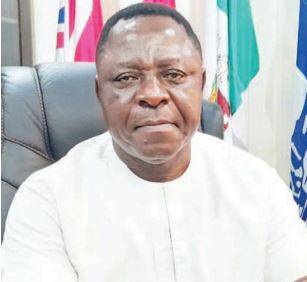
Nigeria dominating Africa spare parts market, says ASPAMDA boss
Nigeria has become a strong force in Africa’s spare parts market, President of Auto Spare Parts and Machinery Dealers Association (ASPAMDA), Hon. Ngozi Emechebe, has said.
He however lamented the decline in auto spare parts manufacturing plants in the country.
He said Nigeria could be a global player in the auto parts production with the right investments in the sector.
The ASPAMDA president spoke at the opening of the ongoing Lagos Motor Fair/Autoparts Expo at the Federal Palace Hotel, Victoria Island.
He said, “We have taken over Angola, Ghana, Togo, Ivory Coast, Gambia, Senegal and many other markets and ASPAMDA is the place to visit.”
The Chinese government, he said, knows the impact of ASPAMDA to their companies; “so Nigeria should wake up. If we are serious, we will take over the world economy.”
He said Nigeria almost got to a point of assembling cars from spare parts produced locally at a time.
“At Nnewi, there were a lot of auto spare part manufacturing companies then. At a time we were about assembling vehicles before things crumbled but thank God, Innoson Motors is doing it again,“ he said.
The ASPAMDA boss showered encomium on President Bola Tinubu-led administration for making efforts to bring back activities in the sector.
He said, “With the way the country is going now, many companies are gradually starting production in the country again.”
Commending the organizers of the Lagos Motor Show for resilience in sustaining the expo over the years, Hon Ngozi said, “Mr Ifeanyi Agwu, the organiser of this expo deserves a thumb up for bringing spare parts makers from across the world to come and showcase their products to our members and Nigerian customers.”
According to him, before the commencement of the expo some years back, ASPANMDA members used to travel to Europe, Japan, Taiwan and other parts of the world in search of companies to do business with.
“But with the spare parts expo, the various parts makers have been brought to Nigeria under one roof to meet with our members and do thriving business,” he said.
This, he said, had saved his members the cost of flight, hotel accommodation, as well as time and eliminated stress arising from flying the long distance to meet with manufacturers.
He recalled that some years ago, his members used to travel to Taiwan to buy spare parts “but when the business started to flourish, and the products started gaining recognition, Taiwan shut their doors against us and raised the prices of goods which made us to turn to China”.
He prayed that one day, China too should close their doors to Nigeria and force us to develop our own products.
Emechebe predicted that Nigeria will take over the world spare parts market in the near future. I pray that “China should close their doors to us so that we can grow” he said.
The ASPAMDA boss also appealed to the Federal Government to look into the high taxes and duties being paid by Nigerian businessmen which he said are killing local manufacturers.
He said, “ It is cheaper to import finished products than to produce locally in Nigeria as most of the companies are relocating to neighbouring countries due to unfavourable business conditions like high taxes, duties, energy and other infrastructure,” he said.
Auto
Three electric vehicles on display steal show at Lagos Motor Fair
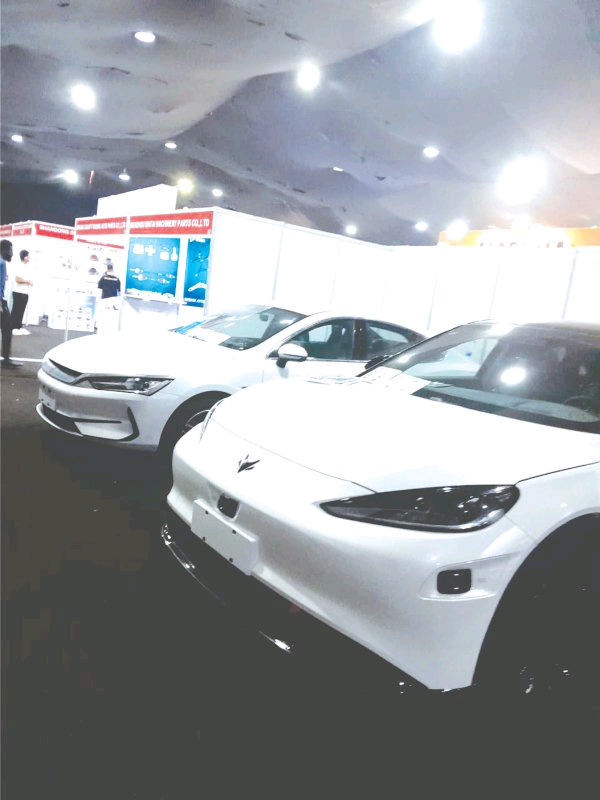
Three electric vehicles on display steal show at Lagos Motor Fair
Three automobile manufacturing companies are exhibiting full Electric Vehicles (EVs) under one roof at the Lagos Motor Fair taking place at the Federal Palace Hotel, Victoria Island.
The unprecedented display of EVs at any auto fair in Nigeria is an indication that the Federal Government’s crusade to shift focus to green cars to save the environment and high cost of fuel is striking the right cord.
Most people at the fair ground visited the EV display arena and were excited by the quality and versatility of the designs.
The three-day motor show/ auto parts exhibition which started on Wednesday is expected to end today (Friday).
So far, the fair has made a lot of difference with the exhibition of the electric vehicles, hybrid vehicles, motorbikes and CNG vehicles.
The Electric Vehicles look beautiful in different colours, all have Chinese origin and available in four and five seaters with superb finishing.
Leading the park is Taocars which displayed two models out of their three models available in Nigeria. The Large and Medium sized Sedans boast of array of features that are tempting to resist by prospective electric car buyers, according to a report by Vanguard.
Managing Director Taocars, Mr Moise Niu told Vanguard that their range of Electric Vehicles can cover several kilometers before recharge. He described the vehicles as trendy, rugged, durable and easy to maintain.
The Marketing Manager of the company Mr Ifeanyi Ugbuaja who was also on ground to explain the features of the vehicles said the Electric Vehicles are pocket-friendly and offers luxury at its peak, in addition to being noiseless.
Also on display were the Bestune models which come as mini vehicles but with amazing spacious interior and features. The model known as fourfold charm and also described as favorite choice is a three door mini car. The company said it is built for fun, safe for all, easy to drive with great look.
Bestune xiaoma is a product of FAW Automobile which is already a known name in the Nigeria truck vehicle segment.
However the Cynosure of all eyes at the fair is Benlg Electric Motorcycles which comes in different sizes and designs. The Electric motorbike which were displayed by Benlg Eletric Motorcycle Nigeria Ltd include the Tank, Anan, Boxer and outstanding. The company also builds Electric tricycles and has capacity to produce 10,000 Motorbikes monthly.
The Managing Director of the Company Mr Leon Nie who said that they were just starting production at their plant in Shagamu, explained that the company has the capacity to meet Nigeria’s motorbike needs.
“Our motorcycles are totally Electric and we want to settle for the production of two and three wheelers as Nigeria EV market is just starting.
Others are the Geely plug-in-hybrid electric vehicle being displayed by Icheta which looks more like a Luxury sedan with its smart interior.
Kia Motors is also displaying its GNG technology at the Motor fair with the CNG powered Rio Sedan.
The CNG vehicles are known for their environment friendly and fuel efficiency which is 50 percent less than petrol.
Auto
Theodore Opara inaugurated as new NAJA chairman, other excos sworn in

Theodore Opara inaugurated as new NAJA chairman, other excos sworn in
The Nigeria Auto Journalists Association (NAJA) has a new leadership that will pilot its affairs for the next three years.
Theodore Opara, the Motoring Editor of Vanguard Newspapers, has been sworn in as a new chairman of the association after a recent keenly contested election.
The election, held at the Teslim Balogun Stadium in Lagos, was marked by a high voter turnout and enthusiasm.
Opara clinched the leadership position with 62% of the votes, signaling strong support from NAJA members.
His victory is expected to pave the way for a transformative tenure aimed at strengthening the association’s role in the Nigerian automotive industry.
Other officials elected alongside Opara are Segun Odunewu as Vice Chairman; Adrian Egonu as General Secretary; Cees Harmon as Assistant Secretary; Daphne Uduneje as Financial Secretary/Treasurer, and Benjamin Alade as Auditor.
In his acceptance speech, the new chairman Opara expressed deep gratitude to NAJA members for their confidence in his leadership.
He vowed to elevate the status of auto journalism in Nigeria by fostering professionalism, ethical reporting, and innovation within the industry.
“I am deeply honoured by the trust my colleagues have placed in me. I assure you all of my dedication to advancing the interests of auto journalism in Nigeria.
“The industry is evolving, and we must ensure that Nigerian auto journalists remain at the forefront of innovation, professionalism, and ethical reporting,” Opara stated.
As the newly elected chairman, Opara unveiled his vision for NAJA, which includes reinforcing the association’s influence in the automotive industry, strengthening partnerships between journalists and key stakeholders, and initiating capacity-building programmes such as training workshops, mentorship initiatives, and advocacy for better welfare of members.
With decades of experience in automotive journalism, Opara is expected to bring a wealth of expertise to his new role.
Industry analysts expect his leadership to foster significant growth, further solidifying NAJA’s relevance in Nigeria’s automotive sector.
Chairman of the Election Committee, Ben Oghifo, spoke on the process and commended the contestants as well as other members for conducting themselves in a dignifying way, emphasizing that it was a reflection of the democratic principles upheld by NAJA.
“The members of NAJA have spoken, and we have successfully delivered a transparent electoral process. Theodore Opara is now set to lead the association into its next chapter,” Oghifo remarked.
In his farewell address, outgoing Chairman of the association, Mike Ochonma, expressed gratitude to NAJA members for their unwavering support during his tenure.
He encouraged the association’s members to extend the same level of support to the new leadership to ensure the continued progress of NAJA.
The Nigeria Auto Journalists Association remains the premier body for professionals covering the automotive industry in Nigeria.
Its members play a critical role in shaping public discourse on industry trends, policies, and technological advancements.
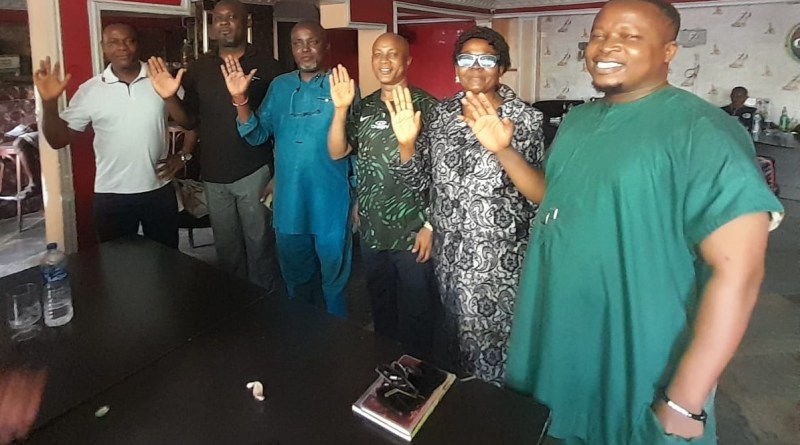
-

 metro2 days ago
metro2 days agoJUST IN: Fubara locked out of Rivers Assembly complex (Video)
-

 Railway3 days ago
Railway3 days agoWe’ll stamp out railway vandalism, says Opeifa, after recovering stolen 91 sleepers, 25 rails
-
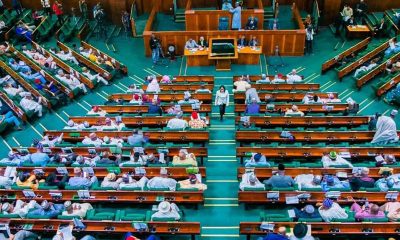
 metro3 days ago
metro3 days agoBREAKING: House of Reps orders shutdown of porn websites nationwide
-

 metro2 days ago
metro2 days agoOmokri to el-Rufai: No party defector has ever become Nigeria’s president
-

 Entertainment1 day ago
Entertainment1 day agoCourt bans viewing of controversial film, ‘Gang of Lagos’
-

 Entertainment3 days ago
Entertainment3 days agoI’ve videos of multiple men sleeping with my wife – Ijoba Lande
-

 News1 day ago
News1 day agoNigerian woman declared dead appears in UK court to reclaim her £350,000 home
-

 Politics2 days ago
Politics2 days agoObasa, Meranda, Lagos assembly members meet Tinubu in Villa

